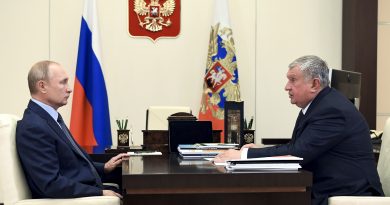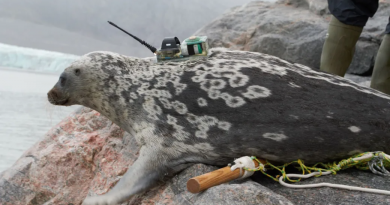Russia’s Lefortovo prison: a haunting song from the Barents region
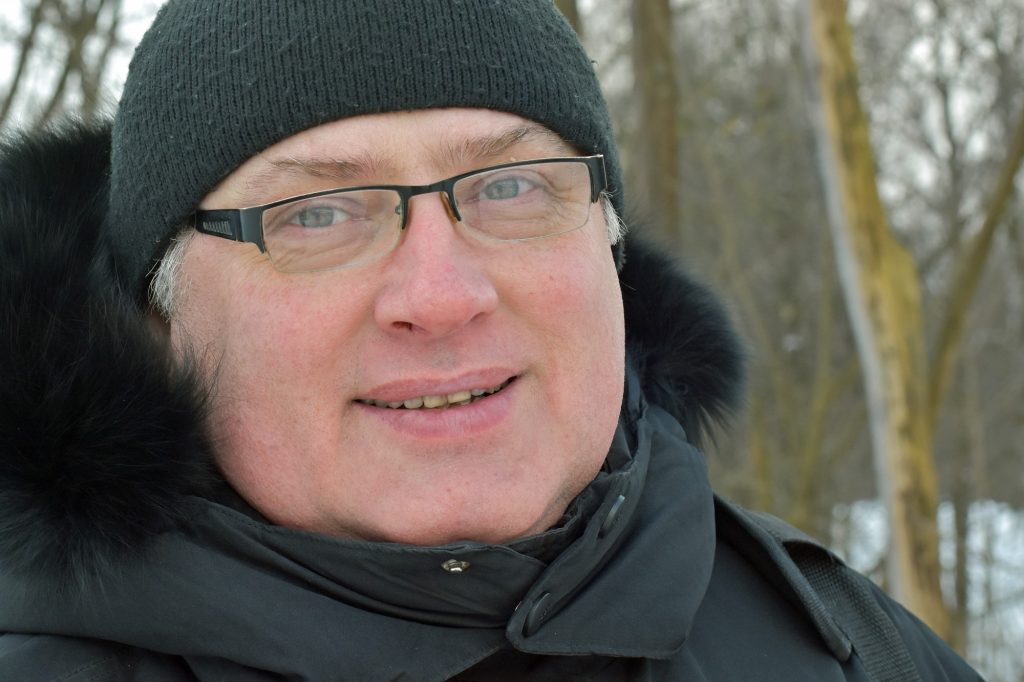
Vladimir Martynenko from Murmansk used to tour neighbouring Scandinavia with Russian ballades about faith and love. He was arrested and spent more than 2 years in Lefortovo after refusing to cooperate with the Federal Security Service.
“You know, the FSB is not itself able to grab the real spies, so it invents spies in order to justify its own existence and high salaries.”
Vladimir Martynenko speaks with a clear and powerful voice. He has a lot to say and knows from inside how it is to be a victim of repression and persecution in Putin’s Russia.
“In Russia these days there is a spy mania going on,” he underlines. He believes the former Norwegian border inspector Frode Berg has fallen victim to the same phenomenon.
Martynenko gesticulates as he tells his own story. He is a free man now, but has left Russia. The Barents Observer meets him in his new apartment.
For 26 months, he was locked up in FSB’s notorious Lefortovo prison in Moscow on charges of espionage. Later, he had another two years and eight months in a prison camp in the Siberian city of Tomsk.
It was all because he refused to cooperate with the FSB, he explains.
Songs from the Barents region
Martynenko grew up in Murmansk and worked many years as professional singer. He is a a tenor and his voice brought him fame far beyond his Arctic region, including in neighbouring Scandinavia. He several times visited Norway and held concerts in both Kirkenes and Lakselv.
In 2002, he was invited to northern Sweden to take part in a music event as representative of Murmansk. He soon met Anna Ibrisagic, the young leader of the Norrbotten Chamber of Commerce. Martynenko made a great impression on Ibrisagic, who later invited him back to Sweden. The up-and-coming politician with Yugoslav background was running for a seat in the national assembly and Martynenko performed at an election rally in Piteå, where he also met Carl Bildt, the recently retired prime minister.
They had a dinner together in a local restaurant. “It was a good time,” Martynenko recalls.
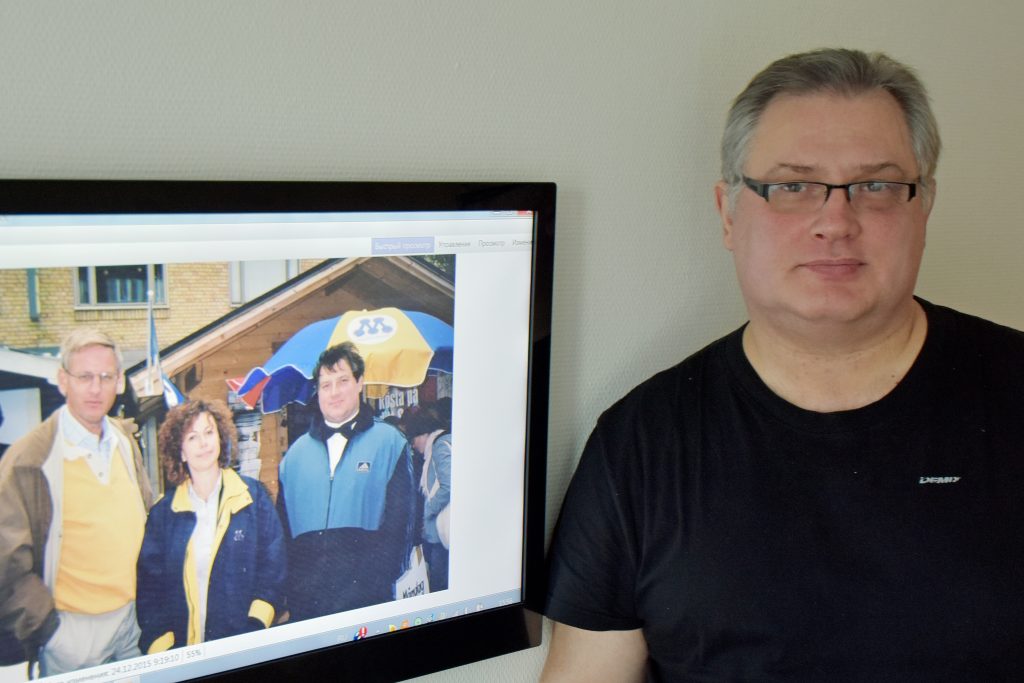
FSB wanted to know about Carl Bildt
Only a few months after his last visit, Martynenko was approached by an officer from the FSB home in Murmansk, who made clear that the security service had a great interest in the Swedish politicians, and that they wanted to know «everything that is going on over there».
In the beginning, Martynenko did not mind.
“Back then, an officer from the FSB did not have much significance for me, after all I was a musician, an artist, I sang for people. Therefore I met with them, I perhaps even thought they would have an event where they needed a singer.”
However, as the security service stepped up contact, he became hesitant. In one of the meetings, the officers requested him to write down the names of everyone he knew, from the foreigners to Russians.
He said stop and refused to cooperate. But it was not that easy. “You know, like the KGB, one cannot simply reject the FSB, this is a very serious structure,” Martynenko tells the Barents Observer.
The arrest
After a break, the FSB came back with rude force. As he was on his way to hold a concert in China in June 2010, he was forcefully detained at the Moscow airport and brought to an interrogation room. According to the security service officers, he was working for Chinese intelligence.
Paradoxically, the detention took place just few weeks after Martynenko had held a concert for a hall packed with FSB officers. It was in the Kirov Palace of Culture in downtown Murmansk and the occasion was an official FSB event. He sang the song “How young we were,” and the whole hall stood up and sung with him, he recalls.
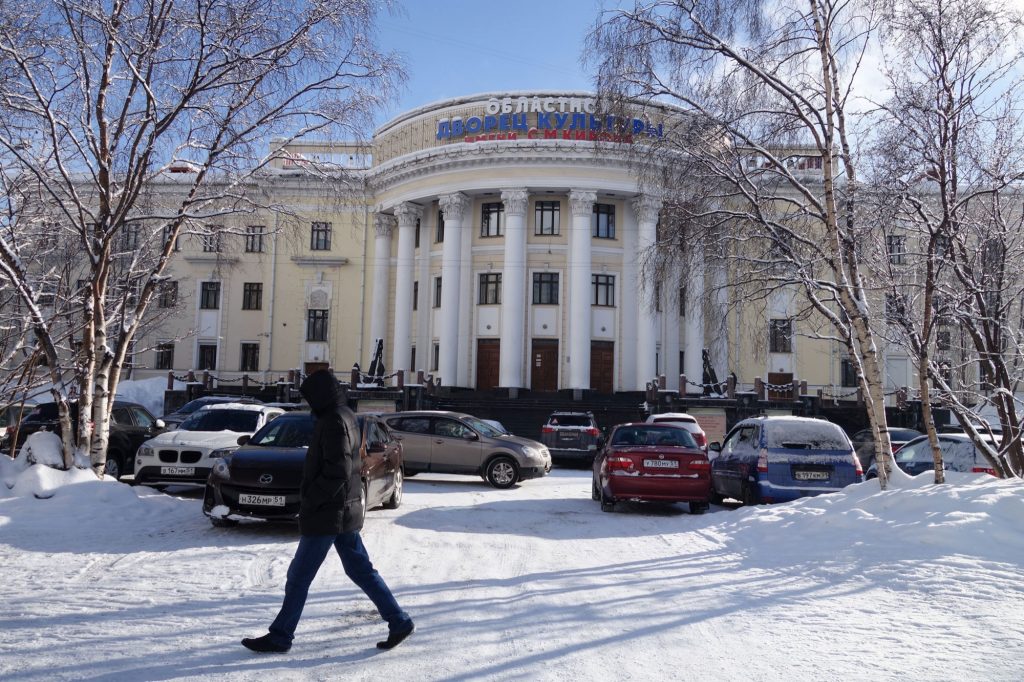
Among the FSB officers doing the arrest at the airport was the man who first had approached him several years earlier.
“They arrested me as a revenge for my rejection to cooperate,” Martynenko says. “The FSB never forgives such things”.
Back in the Soviet days, a big number of actors and actresses all worked for the intelligence. People knew that if they rejected to cooperate, their careers would come to end, and there would be no more concerts and events.
Wiretapping
Martynenko is confident that the FSB wiretapped his telephone and that they carefully collected information about him.
He is not alone, he says. More people like himself are being repressed by the FSB.
“Just have a look at the new FSB headquarters in Murmansk, where there are lots of new people working.”
“These people have to do something, and what can they do? They have to detain someone, find spies. And if they do not find anyone, they have to invent some,” he argues.
Martynenko is confident that Frode Berg is a victim of the same pursuit. Like himself, Berg was probably carefully wiretapped for a long time, he believes. Berg is now experiencing the same hardships in FSB’s high-security Lefortovo prison in Moscow.
“Why Frode Berg?”
“People who wants to do something for Russia trigger suspicions from the FSB. They become visible, and the service starts paying attention to them”, says Martynenko.
Frode Berg is such a person, he believes.
Thanks to the wiretapping, they knew that the Norwegian was going to Moscow, and that he was going to hand over money. However, the money that he had with him in itself does not play any role, he argues.
“And all they say about him being arrested with documents – that is all a lie, it is absolutely nonsense.”
“Why deliver a letter in person when you can do it by mail, email, or even sms?” According to Martynenko, the FSB officers only wanted to catch a spy, which could give them another star on their jacket. And a Norwegian spy includes much more prestige than a Russian one.
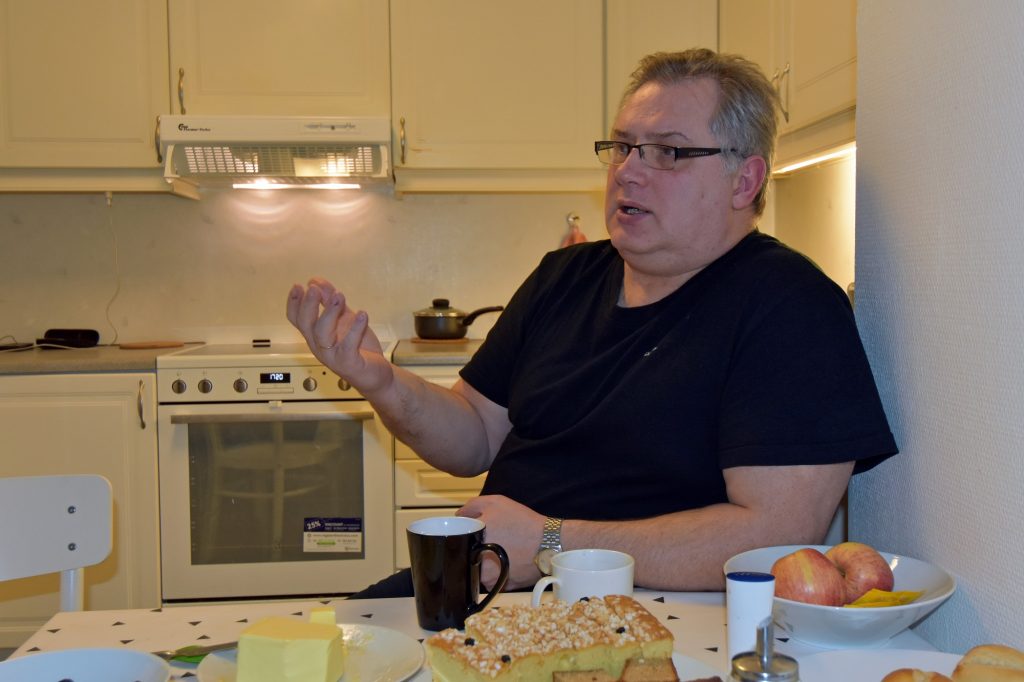
Crime and punishment, the Russian way
According to the Russian singer, investigators from the FSB do not care whether a person is guilty or not.
“Over here, there is another kind of thinking. You think that the people who have committed a crime must be arrested. In Russia, it is not like that. In Russia, when there is a crime, they must designate a person guilty.”
“In Russia today, there is no point in discussing whether there actually was a crime or not a crime, whether there was espionage or not espionage.”
This is what is happening with Frode, Martynenko says. They have arrested him and say that he is a spy. He rejects; “I am not a spy, I do not understand anything.” But they push him and tell him that the money is from the Norwegian intelligence, they give him no other choice but to believe it.
Russian authorities have over several years stepped up their hunt for spies. In 2017, the activities of 72 foreign intelligence officers and 397 agents of foreign special services were stopped, Russian President Putin made clear in his annual speech to the FSB. 30 more spies in 2017 compared with the year before.
Isolation in Lefortovo
He is a physically strong man in his mid-50s, and not the one you would like to end up in a brawl with. Vladimir sets up a brave face. But the years in prison has put his mark on him. In the course of his two years and two month in Lefortovo, Martynenko’s general health condition dramatically deteriorated. Furthermore, the FSB guards gradually broke him down mentally.
In detail, he describes how he himself was detained and arrested in 2010 and the way he was treated in prison.
After the arrest, the inmates normally sit three days all alone in quarantine, in full isolation. At this stage, the person is in shock after the dramatic arrest. Most people, myself included, sleep most of this time, Martynenko explains.
“Everything in chaos, and you can not imagine that it is all very serious and that it can last for a very long time. The person sits there and tries to understand. He starts to think that someone has set him up. In Frode’s case, the FSB is making him believe that the Norwegians, and not the FSB, is the enemy. And he has no one to talk with, nobody speaks Norwegian. He cannot watch TV or listen to the radio.”
The early phase of the arrest is crucial, Martynenko underlines, and makes clear that there are many questions related to this period in Berg’s case.
“What did the first FSB-appointed lawyer tell Frode, what did they talk about, what did Frode sign? What did they translate to him?”
After the quarantine period, there is normally another investigative action. After that, they fully forget about you, Vladimir says.
“And the person sits there for a month or two and does not understand anything. Then, suddenly comes the investigator and says that they need to go tomorrow to get an extension. Then they take you to the court where they give you another three months period behind bars. Then, they again forget about you, before they again take you to court for extension, then again forget, etc.”
In the meantime, the prison managers deliberately put the inmates in the cell with other carefully selected inmates, who each have different roles. Some of them are there to make the prisoner feel calm and safe. Others are there to actively put the prisoner under pressure and make him feel stressed, Martynenko says.
“After a while, you start to understand that it is all a game, that it is all based on lies.”
The cell
“Can you imagine how a cell in Lefortovo looks like?” the former inmate asks.
“It is 2×6 meter meters big, there are two beds, a table, a steel bench, steel closet, a sink with only cold water, and then the toilet,” Vladimir shows with his arms as he walks around in his small flat.
“The toilet is simply an old steel pipe, it has no walls around it and is placed right in front of the door, in the middle of the view from the door peekhole.”
“In Lefortovo you have a constant feeling of living in a toilet,” he describes
The cell is too small to be able to move properly around, and the prisoners always bump into something.
The prison building was erected already in year 1881, and the walls are a meter thick and it is high under the ceiling. You never see the sun or the blue sky. High up on the wall is a small ventilation window.
The light in the cell is on all day and night. In nighttime, the light is a bit less sharp. But it is not enough for reading.
After some months, when the guards start to know you a bit, you can start to request that they turn off the light in daytime, Vladimir says. In nighttime, however, they will never turn it off. It is not allowed to hide under the blanket, but you can use eye shades.
Pre-trial agreement
According to Martynenko, the FSB is likely to offer Frode Berg a pre-trial agreement.
“It works like this,” he says. “They arrest a person and accuse him of a crime, say that he is guilty, and that the charges include a sentence up to 20 years. Then they tell him: If you declare your guilt we will give you a short sentence.”
In these cases, when the prisoner consents, the sentence will be cut in half. In addition, several more years can be reduced because of health condition, family affairs and more.
Then comes the court case, Martynenko says, which will not be an ordinary court case, but held in so-called “shortened version”(sokrashennaya skhema). There will be no witnesses and no real proceedings.
The singer from Murmansk was himself offered a pre-trial agreement. First, he rejected. But then, after 1,5 years, when his father had fallen seriously ill, he consented.
The lawyer promised him five, and not 20, years in jail. In addition, he was to be moved to a prison in Murmansk.
“My mother wrote to me about how father so much wanted to see me before death.”
“Then I admitted guilt. It was very hard for me. I was taken to the courtroom and placed behind bars in a cell and could not talk with anyone. They asked questions and I did not want to lie, but the lawyer who sat not far away signalled to me that I should do so.”
Then came the verdict. It was seven years, and not five as promised. Furthermore, he was never sent to the prison in Murmansk, but instead to the far away Tomsk. His father died without seeing his son again.

“Frode will not be the last”
“People have trust in the state officials, and do not imagine that they might have ill intentions. But both the investigators and the prosecutors can be scoundrels and they cooperate,” says Martynenko.
“You have to regard these guys as thieves and crooks.”
According to the former inmate, they took Frode because he was attracting attention. And more detentions will be made.
“I do not doubt that there will be more people like Frode.”
Martynenko does not know what the FSB wants from Norway, but is confident that Berg can only serve as a hostage. And when Erna Solberg is silent, it is a sign that the game is against her, he argues.
“I think it will take at least 1,5 years before the Frode Berg-case comes to court. It all depends on the FSB.”
Related stories from around the North:
Canada: Lawyer hopes guilty verdict in death of Inuk mother helps restore faith in Canadian justice system, Eye on the Arctic
Finland: Ex-Talvivaara mine CEO to appeal environmental crimes conviction, YLE News
Norway: FSB infiltrated political party Parnas in attempt to discredit Norway : former party leader, The Independent Barents Observer
Russia: Russia charges former Norwegian border inspector with espionage, The Independent Barents Observer
Sweden: Bigger prisons for more prisoners, Radio Sweden
United States: Ex-CEO charged with fraud in Alaska broadband project, Alaska Public Radio Network

